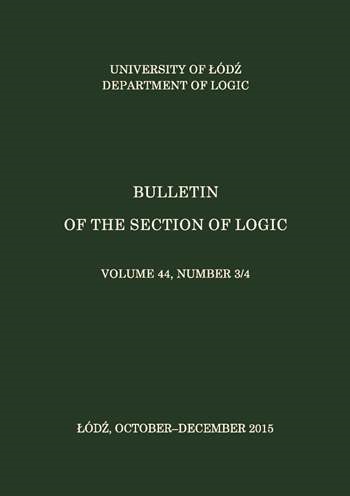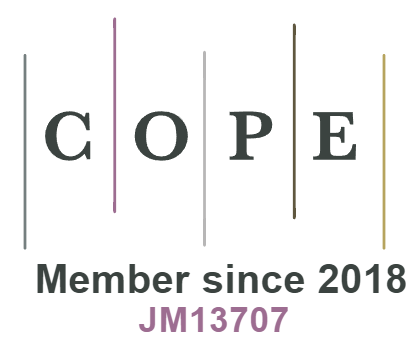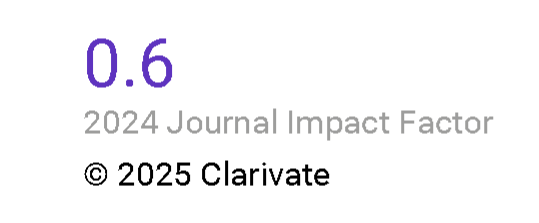Minimal Sequent Calculi for Łukasiewicz’s Finitely-Valued Logics
DOI:
https://doi.org/10.18778/0138-0680.44.3.4.04Keywords:
sequent calculus, Łukasiewicz’s logicsAbstract
The primary objective of this paper, which is an addendum to the author’s [8], is to apply the general study of the latter to Łukasiewicz’s n-valued logics [4]. The paper provides an analytical expression of a 2(n−1)-place sequent calculus (in the sense of [10, 9]) with the cut-elimination property and a strong completeness with respect to the logic involved which is most compact among similar calculi in the sense of a complexity of systems of premises of introduction rules. This together with a quite effective procedure of construction of an equality determinant (in the sense of [5]) for the logics involved to be extracted from the constructive proof of Proposition 6.10 of [6] yields an equally effective procedure of construction of both Gentzen-style [2] (i.e., 2-place) and Tait-style [11] (i.e., 1-place) minimal sequent calculi following the method of translations described in Subsection 4.2 of [7].
References
Dunn J. M., Algebraic completeness results for R-mingle and its extensions, Journal of Symbolic Logic 35 (1970), pp. 1–13.
Google Scholar
DOI: https://doi.org/10.1017/S0022481200092161
Gentzen G., Untersuchungen über das logische Schliessen, Mathematische Zeitschrift 39 (1934), pp. 176–210, 405–431.
Google Scholar
DOI: https://doi.org/10.1007/BF01201363
Gödel K., Zum intuitionistischen Aussagenkalkül, Anzeiger der Akademie der Wissenschaften im Wien 69 (1932), pp. 65–66.
Google Scholar
Łukasiewicz J., O logice trójwartościowej, Ruch Filozoficzny 5 (1920), pp. 170–171.
Google Scholar
Pynko A. P., Sequential calculi for many-valued logics with equality determinant, Bulletin of the Section of Logic 33:1 (2004), pp. 23–32.
Google Scholar
Pynko A. P., Distributive-lattice semantics of sequent calculi with structural rules, Logica Universalis 3 (2009), no. 1, pp. 59–94.
Google Scholar
DOI: https://doi.org/10.1007/s11787-009-0001-6
Pynko A. P., Many-place sequent calculi for finitely-valued logics, Logica Universalis 4 (2010), no. 1, pp. 41–66.
Google Scholar
DOI: https://doi.org/10.1007/s11787-010-0013-2
Pynko A. P., Minimal sequent calculi for monotonic chain finitely-valued logics, Bulletin of the Section of Logic 43:1/2 (2014), pp. 99–112.
Google Scholar
Rousseau G., Sequents in many-valued logic I, Fundamenta Mathematicae 60 (1967), pp. 23–33.
Google Scholar
DOI: https://doi.org/10.4064/fm-60-1-23-33
Schröter K., Methoden zur axiomatisierung beliebiger aussagen- und prädikatenkalküle, Zeitschrift für Mathematische Logik und Grundlagen der Mathematik 1 (1955), pp. 241–251.
Google Scholar
DOI: https://doi.org/10.1002/malq.19550010402
Tait W. W., Normal derivability in classical logic, The Syntax and Semantics of Infinitary Languages (J. Barwise, ed.), Lecture Notes in Mathematics, no. 72, Springer Verlag, 1968, pp. 204–236.
Google Scholar
DOI: https://doi.org/10.1007/BFb0079691
Downloads
Published
How to Cite
Issue
Section
License

This work is licensed under a Creative Commons Attribution-NonCommercial-NoDerivatives 4.0 International License.
Funding data
-
National Academy of Sciences of Ukraine
Grant numbers unknown















